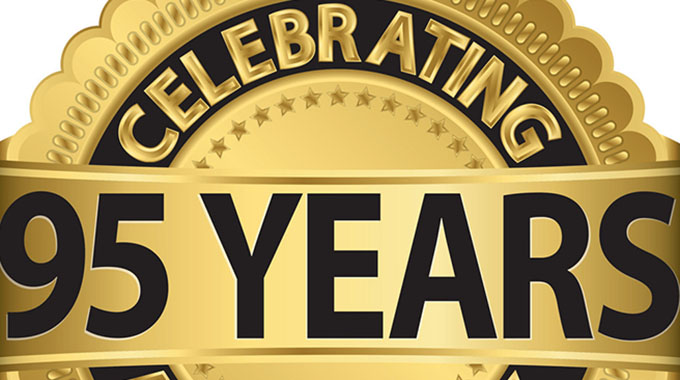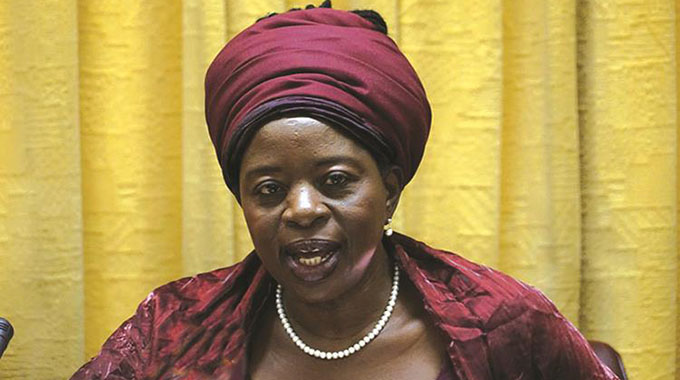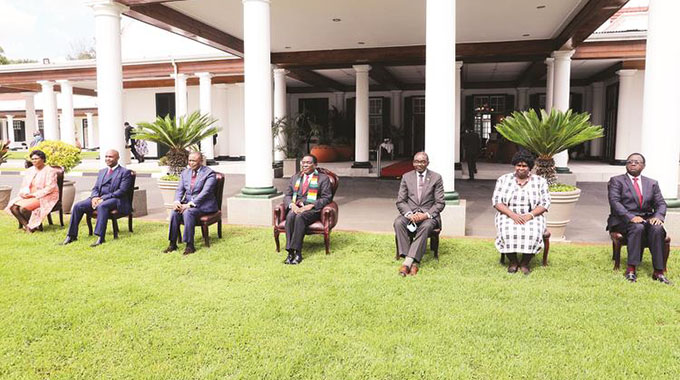Bosso @ 95, what an adventure

Robson Sharuko
Senior Sports Editor
NINETY five not out!
The grand Old Lady of Zimbabwean football, the first African club to produce a European Cup winner, is still going strong.
The first club, from the continent, to produce a player to feature in the English Premiership, is still up and running.
The only Southern African club, whose productive nursery has played a part in sending four stars to the English Premiership, is around.
Highlanders, Bosso, Tshilamoya, Mantengwane, Amahlolanyama, from humble beginnings in 1926, to a domestic football powerhouse, they now even call themselves the team for the entire nation.
This year, the club which was established by King Lobengula’s grandsons, Albert and Rhodes, as a project for their community, has now transformed itself as one of the country’s two biggest football sides.
Even their identity has changed, from being called Lions FC, at birth, to Matabeleland Highlanders, 10 years later, they are now simply known as Highlanders.
They have good company, among the football clubs, who came into existence in 1926.
Two-time Italian champions Napoli, the team where Diego Maradona really flourished, helping them win the UEFA Cup, and transforming them into one of the five Most Valuable Clubs in their country, were also established in 1926.
And, so were their rivals, Fiorentina, who also have two Italian championships, six Coppa Italia titles and the UEFA Cup Winners Cup, in their trophy cabinet.
Fiorentina are just one of the 15 clubs, who have played the finals in all of UEFA’s three major continental competitions — the Champions League, the Cup Winners Cup and the UEFA Cup.
Three-time Greek champions, PAOK FC, were also established in 1926 and, just like Highlanders, have use the black and white colours as the primary form of their identity.
Bosso’s tally of seven league championships is only second to their biggest rivals, Dynamos who have won the marathon a record-breaking 22 times.
Neither giant has won the championship in the last seven years, the longest run, without one of them featuring on the podium of champions, in the 49-year history of the domestic top-flight marathon.
Bosso have now gone 15 years, since they were last crowned champions, when Methembe Ndlovu led them to glory in 2006.
But when it comes to providing a nursery for players who made the breakthrough into the English Premiership, Highlanders are in a class of their own.
They provided the world’s richest football league with its first African player, to feature among its stars, when Peter Ndlovu played for Coventry City in August 1992.
Eight years earlier, Bosso’s former player, Bruce Grobbelaar, had also made history as the first African footballer, to win the 1984 European Cup when he helped Liverpool defeat Italian side, Roma, on penalties.
On March 14, 1995, Bosso old boy, Peter Ndlovu, became the first visiting player to score a hat-trick at Anfield in 34 years, when his three goals powered Coventry City to a 3-2 win over Liverpool.
For all the legendary African stars who have featured in the English Premiership, Ndlovu remains the only visiting player from this continent to score three times in a league match, at Anfield.
Russian star, Andrey Arshavin, was the last to do so when his four goals helped Arsenal secure a 4-4 draw during the 2008/2009 season.
Benjani Mwaruwari, who was the most expensive Zimbabwean footballer when he joined Portsmouth in January 2006 for £4,1 million, also came through the Bosso youth ranks.
Marvelous Nakamba, the Aston Villa midfielder, also played in the Highlanders youth system before joining Bantu Rovers and then moving to his European adventure.
For the part, which Bosso played in his development, the Bulawayo giants were paid about US$41 000 from the transfer fee which took Nakamba from Belgian side, Club Brugge, to Villa.
Club chief executive, Nhlanhla Dube, told our sister newspaper, Sunday News, they received development fees for both Nakamba and Teenage Hadebe, who moved from Kaizer Chiefs to Turkish Super League side Yeni Malatyaspor.
Bosso are the only Southern African football club whose development structures have produced four players good enough to make it into the English Premiership.
While South Africa have had 13 players who have featured in the English Premiership, compared to four from this country, none of their clubs have single-handedly been directly involved, in producing more than two players, into that league.
Mamelodi Sundowns, Cape Town Spurs and Jomo Cosmos lead the way, with two players each.
Bosso will turn 100, in five years’ time, and, along the way, they have been home to some of the finest footballers to grace the game in this country.
From legends like Ananias Dube, Billy Sibanda, Edward Dzowa, Lawerence Phiri, Josiah Nxumalo, Boet Van As, Barry Daka, Tymon Mabaleka, who powered the club to victory in the 1973 Chibuku Trophy, with victory over Mhangura in the final at Rufaro, to the likes of Madinda, Peter and Adam Ndlovu, Willard Mashinkila-Khumalo and Mercedes Sibanda, who led them to their first league championship in 1990.
They are a club which, in the past, have also taken on the authorities.
Unhappy with the John Madzima-led administration in charge of domestic football in 1976, Bosso pulled out of the top-flight league, to help form the South Zone Soccer League.
The Bulawayo giants were celebrating their 50th anniversary that year.
Just like every huge institution, Bosso have had their fair share of internal challenges, including an exodus of players who went on to form Olympics.
Butt, their identity, as a people’s club, has always helped them weather the storms.
In 1986, they won the Chibuku Trophy, the Rothmans Shield, Africa Day Cup, Heroes Day Cup and the Castle Cup and, having finished second in the league, the previous year, these were the signs Bosso were now ready to take their success to another level.
Four years later, the league championship was delivered in 1990, with the club also winning the first title, in the era of the Premiership, in 1993.
Unlike their biggest rivals, in the capital, Bosso have their own club house but some analysts have also said, given their huge support base, the team haven’t reaped the benefits of their massive appeal.
Orlando Pirates’ rise, from a community side into a fully-fledged professional club, capable of reaping dividends for their owners from their commercial ventures, has been used, by some critics, as an example of a project that Highlanders could have become had they followed a different path.
It’s a tricky subject, at a club viewed by some of its membership as a property for their community, which should never be transferred into the hands of an individual, or a corporate owner.
Whether they will take the Pirates route, and be owned by individual, or the Barcelona route, and be owned by their membership, remains to be seen.
It’s a debate, for another day.
For now, Bosso can raise the glass to toast 95 years of a journey that has transformed this iconic Zimbabwean football brand.










Comments